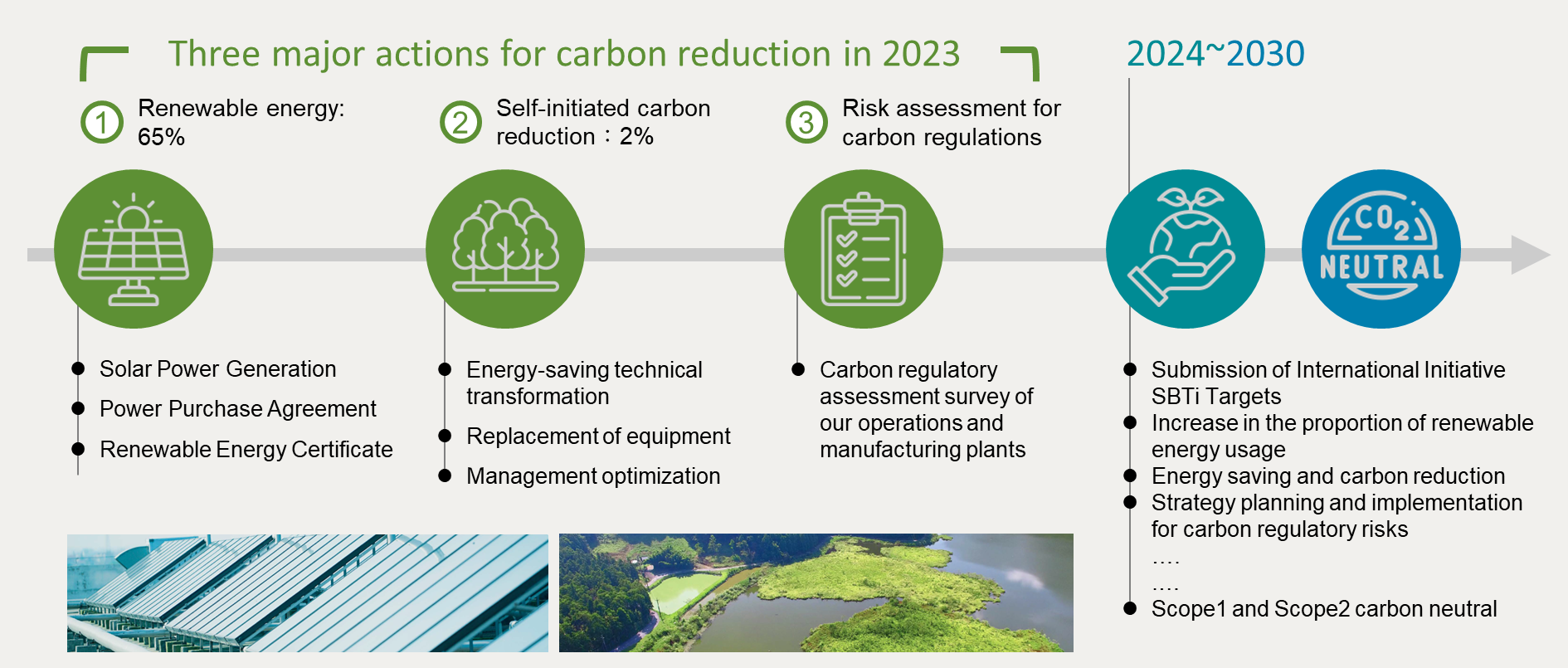Climate Goals
Science-based targets, SBT
Wistron voluntarily joined the Science-Based Targets initiative (SBTi) in 2020 and committed to a carbon reduction target of achieving a 37.8% absolute reduction in greenhouse gas emissions (based on 2016 levels) by 2025. However, by significantly increasing our utilization of renewable energy, we managed to achieve a carbon reduction rate of 66.7% in 2022, surpassing our original target. As a result, in 2022, we further aligned with SBTi's Net-Zero Standard and established goals that are in line with the 1.5°C reduction pathway set by the Paris Agreement. This pathway seeks to limit global warming to a maximum of 1.5°C above pre-industrial levels. These goals were subsequently validated by SBTi in April 2024.
"We commit to achieving operational carbon neutrality for Wistron by 2030
and net-zero greenhouse gas emissions across our value chain by 2050."
- Short-term target: Wistron commits to reduce absolute scope 1 and 2 GHG emissions 90% by 2030 from a 2022 base year. Wistron also commits to reduce absolute scope 3 GHG emissions from purchased goods and services and use of sold products 25% within the same timeframe.
- Long-term target: Wistron commits to maintain at least 90% absolute scope 1 and 2 GHG emission reductions from 2030 through 2050 from a 2022 base year. Wistron also commits to reduce absolute scope 3 GHG emissions 90% by 2050 from a 2022 base year.

Note : In 2022, Wistron's global locations emitted a total of 165,084.85 metric tons of CO2e for Scope 1 and 2 greenhouse gas emissions, and 18,207,477.75 metric tons of CO2e for Scope 3 emissions.


